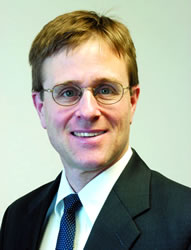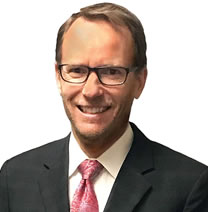Who’s A Medical Expert?
Connecting the dots on how to become a better expert. Let’s look at orthopedic surgery. Physicians by design are experts at treating the human body when they graduate from medical school. But the world has changed in the last 30 years, and physicians have to complete a residency to be fully licensed in many states, AND become a better medicolegal expert.
The Roll of the Medical Expert
So let’s dig a little deeper and consider the legal definition of a medical expert witness, one who can opine on the specific details of their subspeciality in medicolegal proceedings. Generally a medical expert witness is a qualified and experienced healthcare professional who provides their opinion in legal proceedings based on their expertise in a particular field of medicine. Their testimony assists in clarifying complex medical issues for judges and juries.
The Unbiased Opinion
Medical experts are retained by one side or the other in a legal dispute to shed light on the facts of a case. Because of this, some people believe that the expert has intrinsic bias in favor of the retaining side. In fact, the medical expert should be working to support and protect the facts of the case, without bias. Here’s an example from my own experience.
Case in Point
While reviewing records on a personal injury case, a chief complaint appeared to point to a joint injury caused by the collision in question. But the MRI images were not immediately available. However, there was a reference to an MRI of the same joint in a PCP visit note prior to the injury. While brief, the PCP’s study reference suggested the joint in question did have evidence of an underlying injury. An MRI taken after the injury revealed similar findings. At least by report, the effects of the collision really hadn’t changed anything. This may have been overlooked, but the PCP’s reference to the prior MRI was so specific, it appeared to be taken verbatim from the radiologist’s report. Most orthopedic surgeons prefer to read their own images, usually confirming the radiologists’ findings. But without the hard copy, the note was as good as it got in this instance. But with this small bit of information it prompted my team to pull out the stops and find the missing MRI. By reading and corroborating the data, we were able to prove that the MVC was not the main cause of the joint symptoms. With this, the facts of the case were protected, and the case settled.
While this particular instance happened to help the defense side, we have cases which worked in the plaintiff’s favor as well. The take home message is that staying mentally on point is a critical quality in the world of medical experts. Confirming primary source data is often a critical step in helping prove the Medical Expert’s opinion.
Why It’s Important
When my practice receives a request to review a matter, I usually have a conference call with retaining counsel regarding my credentials and experience. It won’t surprise anyone to know one of the most common questions I am asked -- “ Which side do you normally represent?” Early on I was concerned that counsel would be turned off by my representing the other side in other cases. In fact, the vast majority of the attorneys my practice works with are happy to know that I consult for both plaintiff and defense counsel. This gets back to my thoughts on the importance of an unbiased opinion. By providing expert services to attorneys that represent a broad spectrum of medical legal matters, I firmly believe that my analyses carry more weight. And in the end, are less likely to be biased.
Staying Focused on What Matters
Ultimately, protecting the facts of the case requires both intention and practice. It demands that the expert engage fully with the facts of the case, eliminate potential distractions, and uncover the additional key facts of the matter. The goal is not to protect one side or the other, rather the goal for the expert is to find the truth, and thereby protect the integrity of the case as a whole. In that sense, the Medical Expert’s business is a protection racket. And that’s a good thing.
Shawn Hayden, MD, PhD, MBA, President and CEO of ONTO Orthopedics, has over 25 years of experience as an Orthopedic Spine, Trauma and Sports Medicine Surgeon in the Dallas Fort Worth area. Dr. Hayden’s focus has always been in providing high-tech, high-quality care to his patients. For this reason, he is constantly training on some of the latest diagnostic and operative technologies. Dr. Hayden assists medical doctors, scientists, lawyers and law firms with civil matters, malpractice cases, business guidance, and idea generation. His services include medical record review, thorough reporting of causation, depositions, and trial testimony as needed.
©Copyright - All Rights Reserved
DO NOT REPRODUCE WITHOUT WRITTEN PERMISSION BY AUTHOR.











